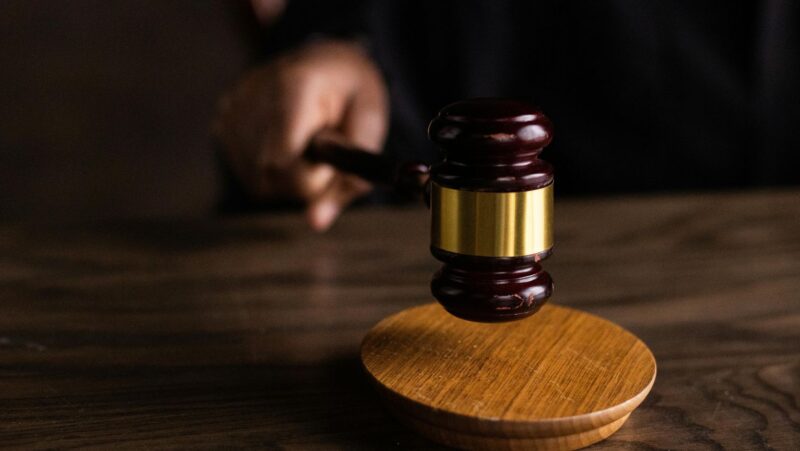
When an accident happens, determining who bears responsibility becomes the central issue in any personal injury case. In Florida, this question is governed by the comparative negligence law. This rule can directly affect the amount of compensation you receive after a crash, slip and fall, or other injury. Understanding how this law operates helps you make informed decisions and protects your right to fair recovery.
How Florida’s Comparative Negligence System Works
Florida follows a modified comparative negligence system, a principle that divides fault among everyone involved in an incident. Each party is assigned a percentage of responsibility based on their actions and behavior. Your share of the fault then reduces your total compensation.
For example, if a jury finds that your damages total $100,000 but decides you were 30% at fault, you would collect $70,000. However, since 2023, Florida law bars recovery entirely if you are found more than 50% responsible for the event. This change makes fault determination more critical than ever.
Because determining liability can be complex, it’s essential to understand how evidence, witness statements, and even insurance company tactics influence your percentage of fault. When your financial stability depends on those numbers, it’s smart to schedule a consultation with Meldon Law to ensure your rights stay protected through each stage of your claim.
Why Fault Allocation Shapes Every Injury Case
Comparative negligence doesn’t just affect court judgments; it shapes settlement discussions, insurance negotiations, and trial strategies. Insurers often attempt to increase your percentage of fault to minimize payouts. Small details, like distracted driving or failure to use a crosswalk, can become leverage points during negotiations.
Attorneys familiar with Florida’s updated negligence standards know how to build strong evidence that accurately reflects your level of responsibility. They gather surveillance footage, police reports, and expert testimony to present a complete picture of what truly happened. This proactive approach prevents opposing parties from unfairly shifting blame.
The Shift from Pure to Modified Negligence in Florida
For decades, Florida used a pure comparative negligence system, allowing injured individuals to recover compensation even if they were 99% at fault. In 2023, House Bill 837 altered that rule, moving the state to a modified system. Now, claimants who bear over half of the responsibility receive nothing.
This shift marked a significant policy change aimed at reducing frivolous lawsuits and lowering insurance costs. Yet, it also means injured people must approach claims more carefully. Even slight misjudgments in presenting evidence can result in the inability to recover damages. The new rule underscores the importance of professional legal guidance early in the process.
Key Factors That Influence Fault Determination

Establishing negligence isn’t always straightforward. Several factors play a role in determining each party’s percentage of responsibility:
- Traffic laws and right-of-way violations
- Eyewitness testimony and accident reconstruction analysis
- Police and incident reports
- Medical records linking injuries to the event
- Statements given to insurers or investigators
These elements interact to create a complete picture of how the accident occurred. A skilled advocate ensures that the interpretation of this evidence remains balanced and fair. They also guard you against making statements that insurers could twist to assign more blame.
Comparative Negligence in Common Scenarios
Different types of accidents apply comparative negligence in unique ways:
- Car collisions, rideshare accidents: Both drivers might share fault if one was speeding and the other failed to yield.
- Premises liability: Property owners and visitors may each have duties, and if a customer ignores warning signs, their recovery may be reduced.
- Product liability: Even when defective products cause harm, misuse of the product can affect compensation.
In every instance, evidence and documentation determine the outcome. Gathering proof, including prompt photos, witness details, and medical evaluations, helps build credibility and preserve key facts.
Strategies to Strengthen Your Personal Injury Claim
Taking the proper steps after an accident can significantly affect your financial recovery. Start by seeking immediate medical attention to document your injuries. Report the incident to the relevant authorities and keep all records. Avoid discussing fault with insurance representatives until you have consulted an attorney.
An experienced legal team will evaluate your claim, explain your options, and counter any attempt to overstate your share of negligence. They ensure you receive full and fair consideration under Florida’s evolving laws. To understand the strengths and potential risks in your situation, it’s wise to schedule a consultation with Meldon Law and review the specifics of your case.
How the Law Encourages Responsibility and Fairness
Florida’s comparative negligence framework aims to strike a balance between accountability and fairness. It ensures that individuals are not punished for minor mistakes while preventing those mostly at fault from benefiting financially. This approach promotes safe and responsible conduct on the road, at work, and in public spaces.
Still, the law’s fairness depends on accurate application. Without proper representation, injured parties risk being held more responsible than they should be. Experienced legal professionals serve as both advocates and educators, guiding clients through the process with precision and transparency.
Understanding the Bigger Picture
Florida’s comparative negligence law not only determines financial outcomes but also reflects a philosophy about fairness, personal responsibility, and justice. Knowing how it affects your injury claim empowers you to protect your future. Each decision you make, from the first conversation with an insurer to gathering medical documentation, can shape your recovery.
Taking early, informed action ensures your case proceeds from a position of strength. Legal guidance not only clarifies your options but also keeps negotiations grounded in evidence and law. In a state where even small mistakes can alter your compensation, understanding these principles is more than helpful; it is essential.










